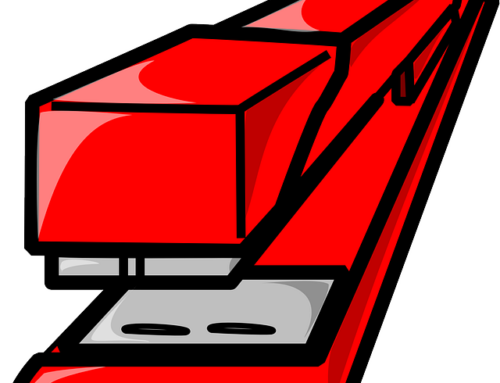By Eddie Pipkin
Here we are at the end of a busy summer (well, here I am at the end of a busy summer – maybe you had a slow-paced, recharge kind of a summer instead of a summer full of logistical adventures and family  transitions – if so, you are probably gearing up right now for a frenetically-paced fall). Either way, the Labor Day weekend is a good time to take stock at how we’re doing at the discipline of the slowdown. One of the fundamentals of healthy self-care is calling a “time out” and withdrawing from the hubbub.
transitions – if so, you are probably gearing up right now for a frenetically-paced fall). Either way, the Labor Day weekend is a good time to take stock at how we’re doing at the discipline of the slowdown. One of the fundamentals of healthy self-care is calling a “time out” and withdrawing from the hubbub.
Everybody knows (and few of us practice with any sustained regularity) the habit of the unplug. Especially for ministry leaders – who have emotionally demanding interactions as part of their day-to-day routines and who are constantly called upon to think creatively – the “time out” offers spiritual sustenance and soul restoration. Everybody also knows that Americans have a reputation for indulging in overwork, and that even when we’re supposed to be “off,” we’re satisfying our smartphone addictions. So, step back and do an assessment right now: How are you doing at taking some alone time?
Of course, you can’t take time out if you keep adding stuff to your plate. So, the first step in carving out some healthy “me” time is learning to say no. Fall and the end-of-year holiday season offer many opportunities to say yes to new assignments. Write down your priorities for the next few months and stick that list over your desk or on your bathroom mirror. Know those priorities and be faithful to them! If someone is asking you to do something that does not align with your current goals, say no. Your yesses should be a preciously doled-out commodity. (And nothing sucks the life from your soul faster than saying yes to something you really don’t want to do.)
If you’d like to have a good laugh and get a tutorial on all the ways ministry leaders can creatively say no, check out John Crist’s short and very funny video.
Once you’ve made a recommitment to stop adding to your pile of obligations, let’s review some ideas for how to work in more sanity and self-reflection in your routine. All of these ideas will be familiar to you. Some of them you may be doing well. Some you may have pledged to do, but fallen from the wagon. Some you may not have tried before. Pick a couple and set a time frame for seeing how they affect your routine.
- Device Diet. Entrepreneur’s website reminds us that our #1 productivity tool leads a double-life as our #1 time suck. They suggest starting with these addiction managing strategies: 1) Have a designated “no device” time scheduled into your day. 2) Turn off notifications. Check things you need to know periodically, not constantly. Psychologists consistently tell us that this notification-obsession is the most damaging thing we can do to our attention spans. 3) Cut back on social media. Take an experimental break and see how it affects your general disposition.
- Back to Nature. Nature is God’s gift to our soul, and multiple studies have shown that our most beneficial recharge comes from getting out into Creation (not binge-watching Netflix). This can be a short walk in a nearby park, or a weeklong camping or hiking trip all alone. In fact, a solo wilderness adventure, if you are up for that sort of thing, can have profound effects. Adventure writer Aaron Gulley writes about how they not only help you clear away the detritus, but they can also get you ready for what’s next and even make you miss working with others:
That’s the other nice thing about time alone: it fortifies you for the work ahead and makes you appreciate everything your partner adds to your daily experience.
- Taking It Old School. As part of your technology resistance efforts, revel in an old school effort. I recently rediscovered the joy of going to the library. I had totally embraced reading-by-Kindle and other electronic forms of accessing books and magazines, but I found my old library card and ventured over to remember the joys of wandering the stacks and reading from physical books and magazines. Likewise, write someone a letter instead of an email. Or this week, when you get an urge to send a text, make a phone call and have a real chat instead. Embrace a little slow technology.
- Quiet Time. Schedule time in your day to turn everything off. Prayer time should be a part of every ministry leader’s day, and so should neutral quiet time: just sitting and listening and absorbing the sights and sounds of the world around you. Sit in a chair. Lie in a hammock. Float in a pool. Let your mind wander. This is great to do as a transition between things.
- Naps. Do them! And don’t feel like you’re obligated to make an excuse for them! (Do keep them short, and don’t do them during meetings.)
- Mini-Retreats. Get away. By yourself. See how long you can tolerate going solo (no distractions). This is a terrific mind detox. It’s also very scary for many people – we have built an entire culture (and our reinforcing it with our children from the earliest ages) in which we never have to be alone with our thoughts. There is always something to entertain us. Learn to be with yourself – it turns out, you are awesome.
- The Deep Read. Remember that your brain needs some sustained deep-focused reading (a good novel, longform magazine article, or some poetry). We are increasingly geared to read in short snippets, headlines, tweets, and bullet points, and this is a great way to access some great information (like in certain blogs, if you know what I mean), but your brain craves more. You should regularly set aside time for focusing deeply on something that stimulates your intellect.
- Skip a Meeting. Give yourself permission occasionally to blow off a meeting (or do something similarly out of character in terms of ignoring your regular responsibilities). BUT when you do, use that time to do one of the things on this list (not go shopping).
- Learn to Breathe. Learning to use breathing techniques as a way to seek calm, focus one’s thoughts, face anxiety, and replenish energy is a powerful tool. These breath exercises can release tension, keep us from having an angry outburst, prepare us for stressful encounters, and make five minutes feel like a trip to the mind spa.
- Cherish an Old Place. Find a New Place. Know where your favorite spaces are (a room, a chair, a view, a tree, a trail) and make them your own – cultivate them; decorate them; personalize them; look forward to enjoying them as a reward for your hard work. Return to them often and don’t let work, stressful conversations, or unpleasant people intrude on them. Let them be your safe and restful, holy spaces. On the other hand, don’t always retreat to your fortress of solitude. Make it a point to find new places. Explore hidden corners, roads not taken, and the other side of the hill. This is how we gain new perspectives, discover new things about the world and ourselves, and see things we never saw before. Pay attention (using all the strategies listed hear to be mindful and attentive).
What are your tricks for recharging? How do you discipline yourself to step back from the hubbub? How good are you at being alone? Share your own wisdom and your own challenges in our community space.







Leave A Comment